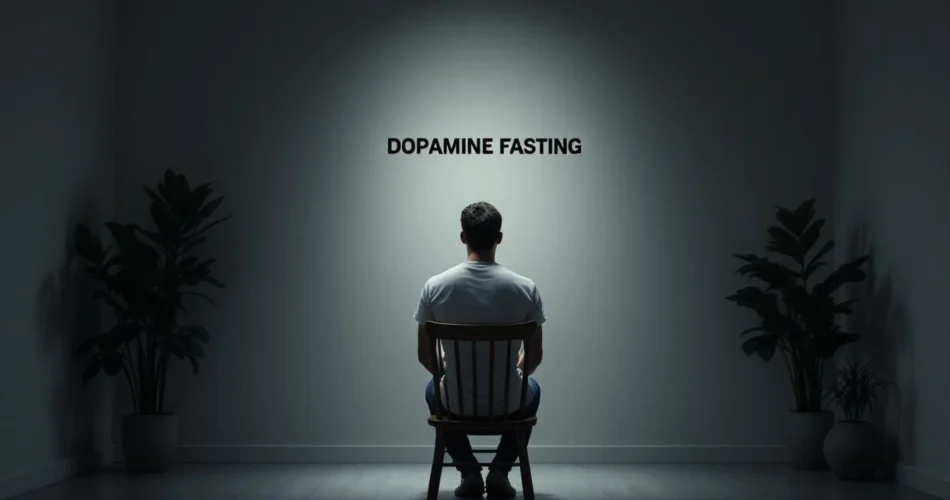Table of Contents
- What is Dopamine Fasting?
- How Dopamine Fasting Works
- Benefits of Dopamine Fasting
- How to Start Dopamine Fasting
- Potential Risks and Misconceptions
- FAQs about Dopamine Fasting
- Conclusion
What is Dopamine Fasting?
The Concept Behind Dopamine Fasting
Dopamine fasting is a mental health and productivity approach designed to reduce overstimulation by temporarily abstaining from pleasurable but highly stimulating activities—like social media, video streaming, junk food, or gaming. The concept was first popularized in Silicon Valley and discussed in Stanford psychiatry research. It’s not about cutting dopamine production itself (which is essential for survival) but about allowing your brain to become less dependent on constant stimulation.
The Role of Dopamine in the Brain
Dopamine is a neurotransmitter involved in motivation, learning, and reward. It doesn’t simply create pleasure but acts as a signal that drives you to seek rewarding experiences. When you indulge in instant gratification repeatedly, your brain may adapt by needing more intense stimulation to feel the same satisfaction—reducing your attention span and focus.
Difference Between Dopamine Fasting and Real Fasting
Unlike intermittent fasting (read more on intermittent fasting benefits), dopamine fasting is not about food restriction. It’s about behavioral discipline—creating intentional periods without high-stimulation activities so you can develop self-control and mental clarity.
How Dopamine Fasting Works
The Brain’s Reward Pathway
When you receive pleasurable stimuli—likes on a post, a delicious snack, or a gaming win—your brain’s reward pathway releases dopamine. Constant microbursts of dopamine can overstimulate this circuit, leaving you less able to focus on challenging but important tasks.
Reducing Stimulation to Reset the Brain
Think of dopamine fasting as a detox: by reducing stimulation, you give your brain a chance to re-sensitize to more subtle, meaningful rewards. Even boredom can be a creative catalyst, encouraging you to think more deeply and find satisfaction in less intense activities.
Science vs. Pseudoscience Debate
While some advocates believe dopamine fasting can “reset” your brain, skeptics say the science isn’t fully proven. Harvard Health points out that you can’t literally fast from dopamine—but you can change your environment and habits to reduce overstimulation.
Benefits of Dopamine Fasting
Improved Focus and Attention
By removing constant distractions, you clear mental clutter and prime your mind for deep work. Tasks that once seemed impossible to concentrate on become manageable.
Enhanced Self-Control
Dopamine fasting helps break cycles of instant gratification. You become more resilient against urges—whether it’s mindless phone checking or snacking—and better at delaying rewards.
Greater Mindfulness
With fewer digital and sensory inputs, you become more present in everyday moments. For example, eating without screens can make you appreciate flavors more. You can learn more in our guide to mindfulness meditation benefits.
How to Start Dopamine Fasting
Identify Your Overstimulation Triggers
Start by noticing which activities give you quick pleasure but leave you drained—such as social media, streaming, online shopping, or processed snacks.
Set Rules and Timeframes
You can try daily “micro-fasts” (1–2 hours without devices) or longer weekend fasts. Some people set aside a full day without high-stimulation habits once a week. Start small, then expand as needed.
Activities to Replace High-Stimulation Habits
Swap triggering activities with low-stimulation alternatives: read a physical book, go for a walk, meditate, or journal. Explore our digital detox tips for more ideas.
Potential Risks and Misconceptions
Myths About “Reducing” Dopamine Levels
You cannot deplete dopamine like fuel—it’s constantly produced by your brain. Dopamine fasting is about reducing stimulation, not chemical reduction.
Risks of Misapplication
Overdoing dopamine fasting—such as extreme isolation—can harm mental health. It’s essential to maintain social contact and healthy stimulation levels.
Finding a Balanced Approach
Integrate fasting into your lifestyle without going to extremes. According to Psychology Today, sustainable habit change requires balance and gradual adjustments.
Frequently Asked Questions
Is dopamine fasting backed by science?
There’s no evidence you can literally “fast” from dopamine, but reducing overstimulation is supported by behavioral science and mindfulness research.
How is dopamine fasting different from meditation or mindfulness?
Mindfulness focuses on awareness of the present moment. Dopamine fasting restricts high-stimulation inputs to help you achieve that focus more easily.
How long should a dopamine fast last for beginners?
Try short fasts of 1–4 hours initially, then increase to half or full days depending on your comfort level and lifestyle.
Can dopamine fasting help with addiction to social media?
It can be a helpful tool to break compulsive usage patterns, but pairing it with other strategies like app timers or therapy may increase effectiveness.
Do you have to avoid all pleasurable activities?
No—focus on limiting those that are overly stimulating or that you engage in excessively. Gentle pleasures like light stretching or listening to calm music are fine.
Conclusion
By now, you know what is dopamine fasting and how it can improve focus, mindfulness, and self-control. While the practice isn’t a magic fix, it can serve as a valuable tool in your mental wellness toolkit. The key is moderation—using dopamine fasting to rebalance your brain’s reward system without cutting out healthy pleasures. If you’re ready to boost your focus and reclaim your mental clarity, start small, be consistent, and pair this method with other healthy habits for the best results.

